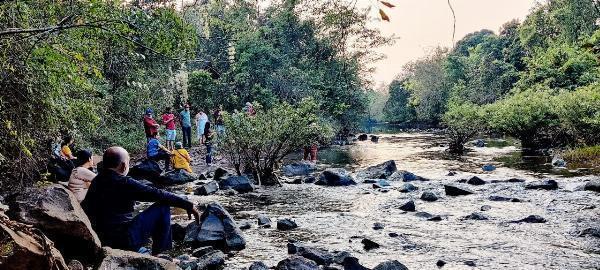Researchers sound alarm over concerning trend taking over coastal waters: 'People have to be more aware'
Bull sharks are spending more time near Sydney's beaches each year, and scientists warn that rising ocean temperatures could eventually keep them there year-round.
According to an Agence France-Presse report, via France 24, new research tracking these apex predators along Australia's southeastern coast is pointing to an increasing overlap between sharks and swimmers.
"While the chances of a shark bite … remain low, it just means that people have to be more aware of an increased window of bull shark presence in coastal waters off Sydney," James Cook University researcher Nicolas Lubitz said, per AFP.
What's happening?
As AFP detailed, a team of researchers analyzed 15 years of acoustic tracking data from 92 tagged bull sharks near Bondi Beach, Sydney Harbour, and surrounding areas.
The resulting study, published in the journal Science of the Total Environment, found that the sharks now spend an average of 15 days longer in the region during summer than they did in 2009.
This behavioral change aligns with rising sea-surface temperatures. Between 2006 and 2024, the October-to-May period saw a 0.57 degree Celsius increase off Bondi, the researchers observed.
Since 1982, summer temperatures across the region have climbed by 0.67 degrees Celsius. Bull sharks typically migrate north to Queensland in winter, but warmer waters off New South Wales are extending their stay.
"If this trend persists, which it likely will, these animals are going to spend more and more time toward their seasonal distributional limit," Lubitz explained, per AFP. "It could be that a few decades from now, maybe bull sharks are present year-round in waters off Sydney."
Why is this trend concerning?
Although shark bites are rare, longer shark presence near busy beaches increases the chances of dangerous encounters.
As AFP noted, bull sharks are among the top species linked to serious bites in Australia.
Do you worry about air pollution in your town?
All the time
Often
Only sometimes
Never
Click your choice to see results and speak your mind.
In June, ABC reported that a 16-year-old surfer was hospitalized after a shark attack off northern New South Wales.
Researchers said this behavior shift could affect more than just marine life. It may disrupt coastal recreation, tourism, and safety planning.
Lubitz also observed that great white sharks, which prefer cooler waters, appear to be losing summer habitat in northern New South Wales and Queensland. These patterns reflect a broader disruption to natural systems that could impact both ecosystems and communities.
What's being done about it?
Real-time alerts from tagged sharks help notify swimmers when the animals approach monitored beaches. New South Wales also installs shark nets at 51 beaches each summer. However, growing concerns about their effectiveness have led to calls for non-lethal alternatives.
Rising temperatures aren't the only concern. Marine pollution and microplastics are also threatening the health of Sydney's coastal waters.
In response, researchers stress the importance of continued monitoring and early adaptation strategies to protect both people and marine life.
As ocean conditions evolve, public awareness and preparedness will be key to maintaining safety and resilience at the shore.
Join our free newsletter for good news and useful tips, and don't miss this cool list of easy ways to help yourself while helping the planet.










![Structural Adhesives Market [2028] Exploring Potential, Growth, Future & Trends](http://paseban.com/zb_users/upload/2025/08/20250831123209175661472915180.jpg)


